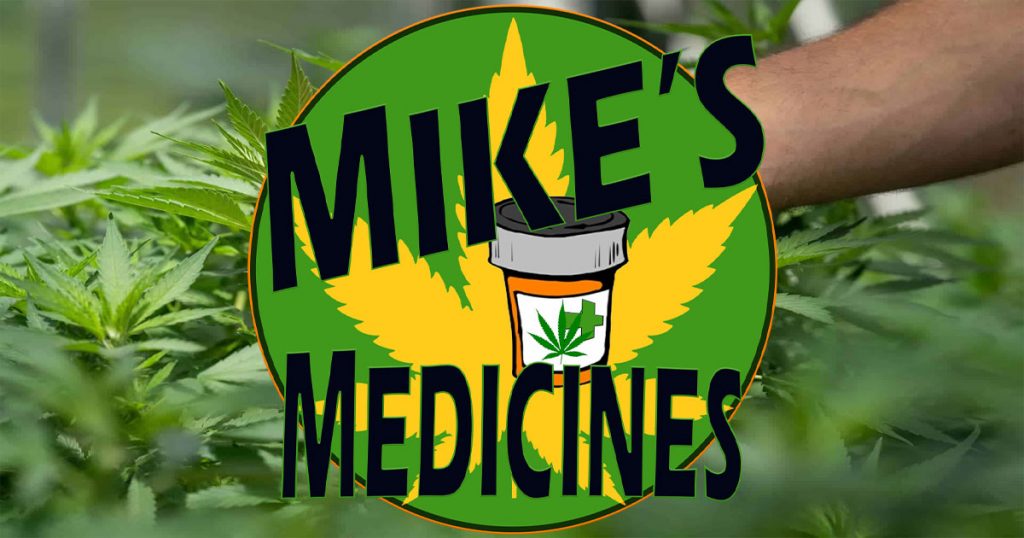The state of Colorado has become the third in the nation after New York and Illinois to allow doctors to recommend medical marijuana instead of opioids for pain relief.
NBC News recently reported this which has made many of us very happy and at the same time a bit worried. The laws that allow doctors to ‘replace’ opioids with cannabinoids also allow a doctor to discontinue a medication that a chronic pain patient may find very necessary. After quitting 24 years of use myself, I’m very aware that many won’t have the knowledge or access to the type of cannabinoid medicine necessary for replacement therapy. While it’s great to see the advancement of medicinal cannabis to this point, the hope is doctors in Colorado are much more open to the needs of patients than those in other states who make quick decisions to end a patients supply to narcotic pain medications instead of helping them through the process. My own journey, even with the access and knowledge of what to use was not as simple as one might think. Thankfully for those in Colorado they’re dealing with a medical community that realizes the intense benefits of Cannabis and will likely help guide their patients through the process. Now let’s read the NBC report:

“As the nation grapples with an opioid crisis that kills more than 130 people every day, Colorado thinks a solution may lie in a joint, a vape pen, or a topical.
On Friday, it becomes the third state in the nation after New York and Illinois to allow doctors to recommend medical marijuana for any condition for which they would prescribe an opioid.
In two other states, Pennsylvania and New Jersey, patients diagnosed with opioid use disorder may be advised to use medical marijuana instead of opioids. And as of July, individuals in Nevada who are dependent upon opioids also qualify.
In most states where medical marijuana is legal, it can be accessed for general pain relief. But now in Colorado, post-operative patients or those struggling with acute pain from an injury can potentially use medical marijuana instead of opioids.
“It was designed to give physicians a legal, open option to discuss [medical marijuana use] with patients,” said Colorado Rep. Edie Hooton, a Democrat, who co-sponsored the bill. “It normalizes the conversation around the issue.”
Research does not yet categorically support the idea that medical cannabis can replace opioids or reduce opioid dependence or overdose.
Last year, the Minnesota Department of Health released the results of its study of 2,245 patients taking medical marijuana for “intractable pain,” which is chronic. (The Colorado bill focuses on acute pain.) Of the 353 patients who self-reported that they were using opioids when they began consuming medical marijuana, 63 percent had reduced or eliminated their opioid use after six months.
But another 2018 study published in the Journal of Addiction Medicine found the opposite — that medical marijuana users “were significantly more likely to report medical use of prescription drugs in the past 12 months.”
“The science for this is really in its infancy, and policy is far outpacing what we know based on evidence,” said Ziva Cooper, research director at the University of California, Los Angeles, Cannabis Research Initiative. “We’re very far from coming up with a conclusive statement saying cannabis can be helpful as a substitute for opioids based on controlled studies.”
Much of the excitement surrounding the potential for cannabis to reduce opioid-related deaths originated with a 2014 study published in JAMA Internal Medicine, which found that between 1999 and 2010, states with medical cannabis laws saw close to a 25 percent reduction in opioid overdose deaths.
Those results were recently challenged when a new study expanded the original analysis through 2017 and found that states with medical cannabis laws had a nearly 23 percent increase in overdose deaths.
“Cannabinoids have demonstrated therapeutic benefits, but reducing population-level opioid overdose mortality does not appear to be among them,” the authors concluded.
One of the researchers went so far as to say, in a JAMA editorial published several months before the new study, “substituting cannabis for opioid addiction treatments is potentially harmful” and that the recommendation for substituting medical cannabis for opioids does not “meet the standards of rigor desirable for medical treatment decisions.”
Yet state lawmakers said there’s enough promising evidence to support opening up a dialogue between physicians and patients about options when it comes to acute pain.
“We want to give folks a legitimate alternative,” said Amanda Bent, former policy manager with the Colorado office of the Drug Policy Alliance, which supported Colorado’s legislation.
Hooton said the bipartisan bill was never “about treating opioid addiction.” Yet others openly promoted it as a way to curb opioid use and overdose fatalities, which lines up with its portrayal in other states.”
This article first appeared in https://www.nbcnews.com and was reprinted as well on the Global Cannabinoid Research Center blog.
It’s about time ALL States follow the lead of these front runners. Doctors need to learn more about medicinal cannabis and open their minds to the fact that patients across the world have found alternatives to often deadly and very harmful pharmaceutical drugs.
-Mike Robinson, Cannabis Patient and Founder, Global Cannabinoid Research Center. But, most of all, Genevieve’s Daddy
Sign up to receive informative and exciting email updates from Mike's Medicines!
You can sign up for our mail list here:
Didn't find what you are looking for?
Find exactly what you want to when you want it.
Browse through our archives by date, category or by entering a topic in the provided search field.
Archives
Categories
More to come as we have time to add them – there’s 100’s of additional publications!

We’ve made it easy for you to read Mike’s Medicine Blog or visit any of the Menu items right from here. It is that simple! Explore Mikes Medicines by clicking on the button below:

Read about how Cannabis Compassion and love created Mike’s beautiful family, the Cannabis Love Story inspires millions daily:
Genevieve’s Dream is all about her love for the Carousel coupled with her Cannabinoid Medicine journey – read more and make contact if you’re interested in collaborating with Mike!
The Global Cannabinoid Research Center is a trusted source for education, R&D, and more – make contact with us to collaborate.






